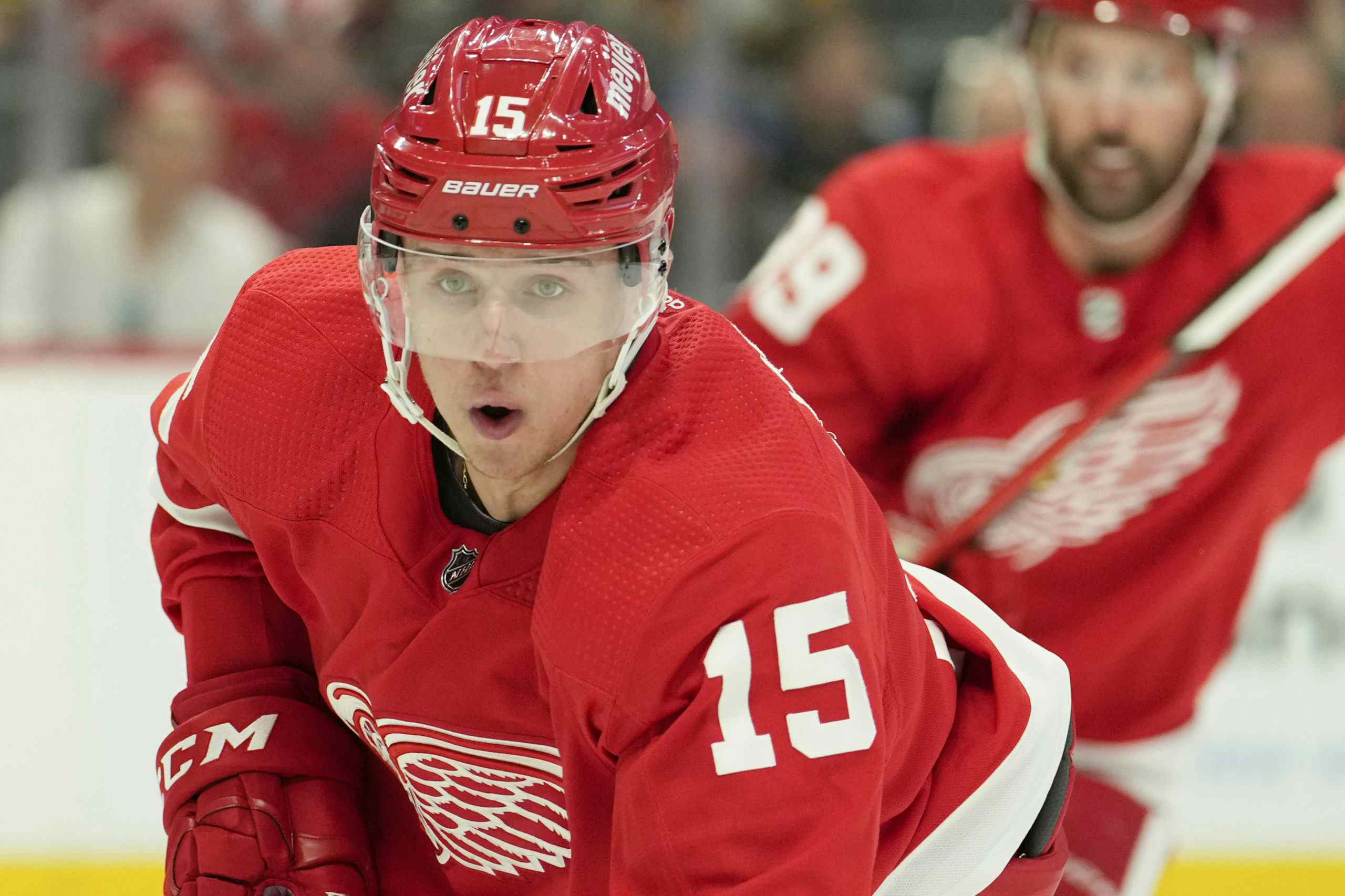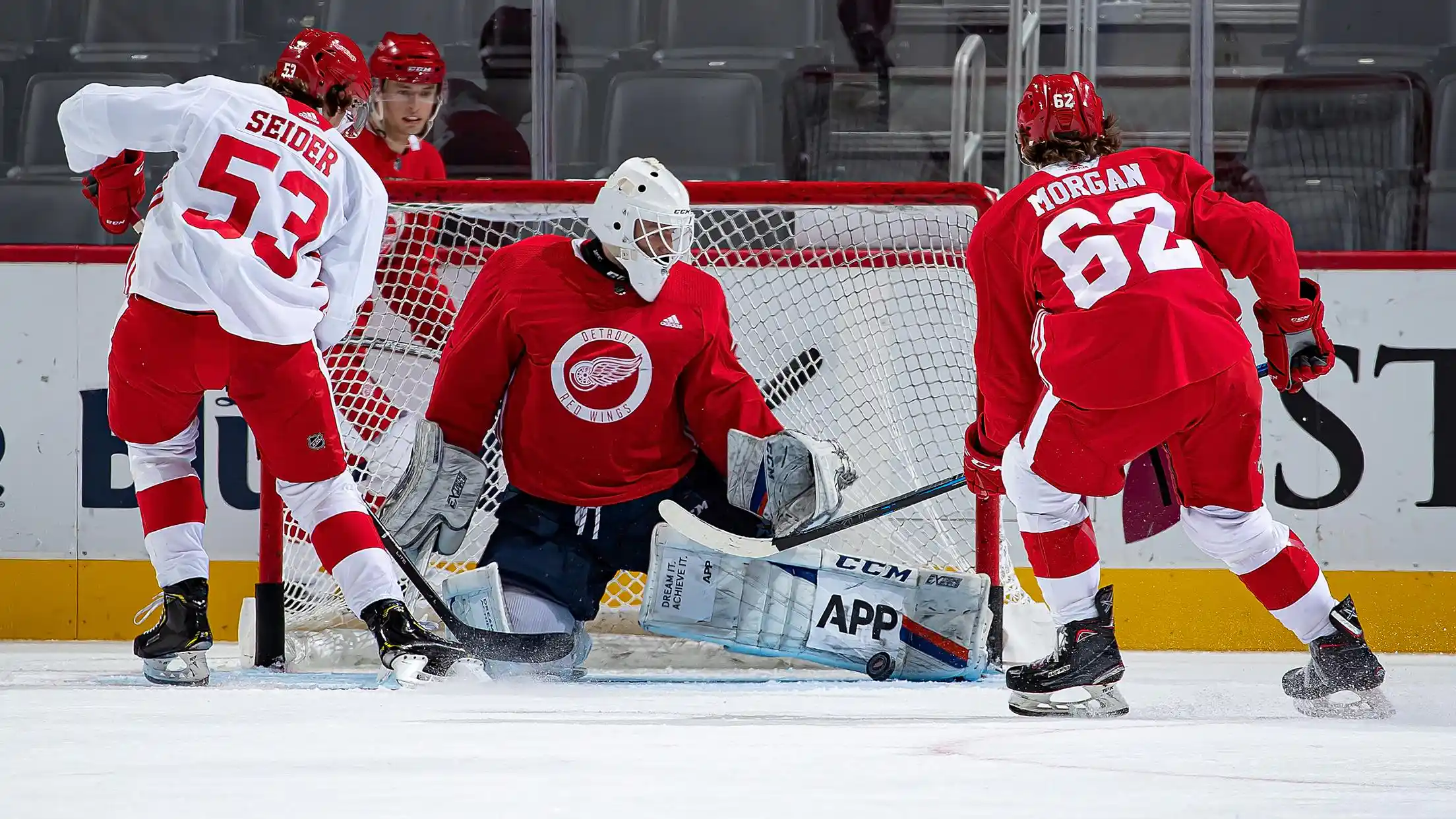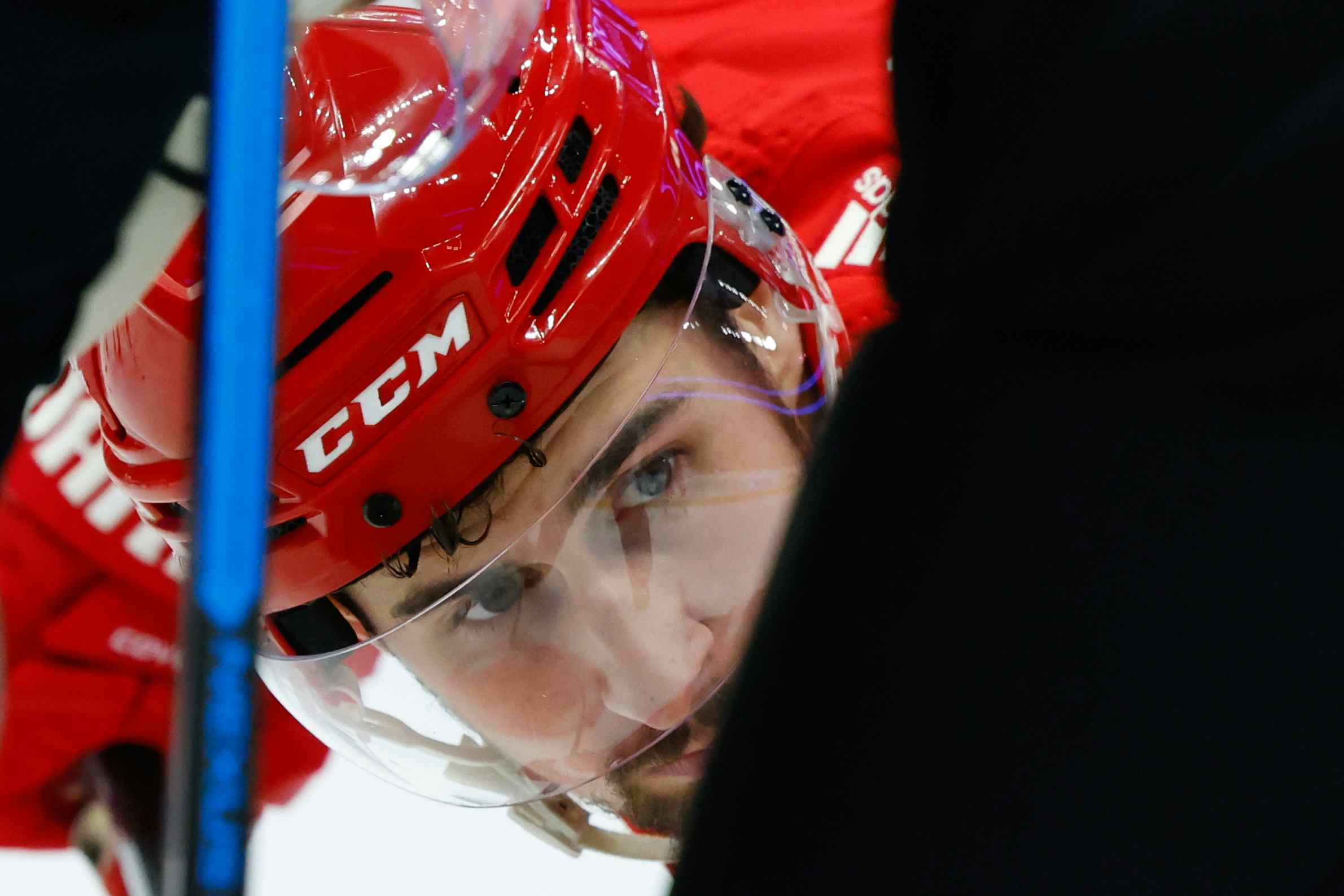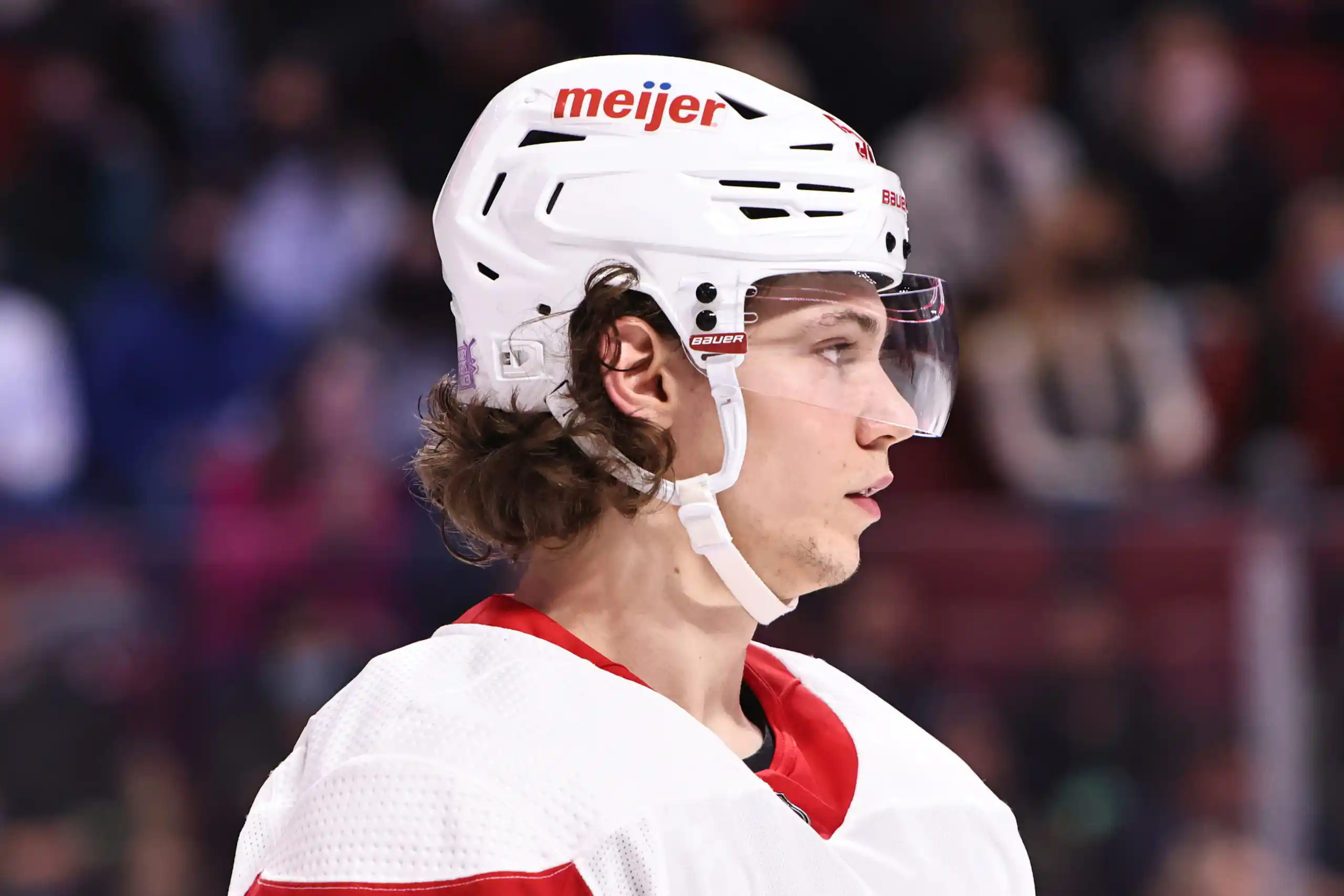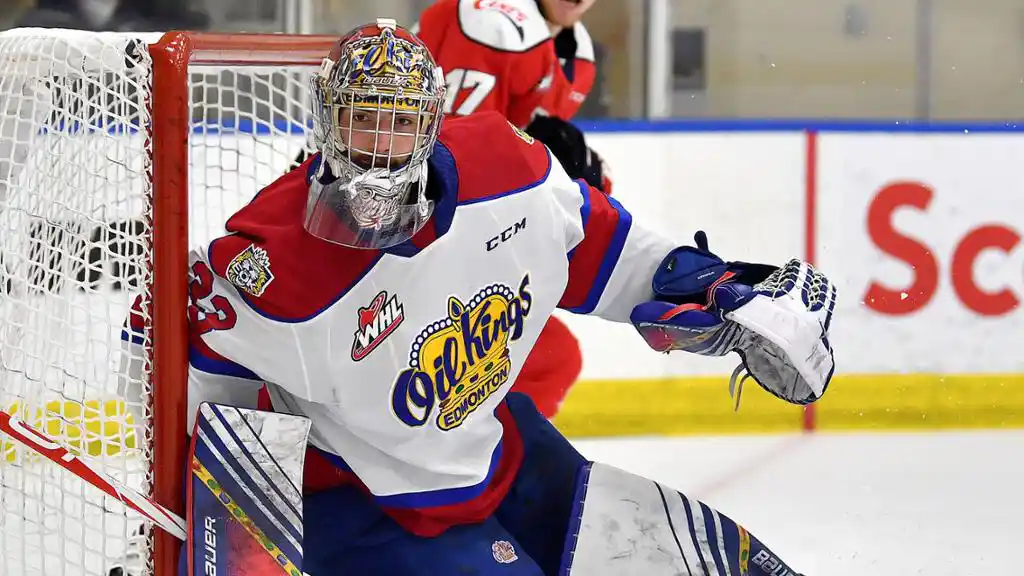20 Years Ago: A Rivalry Unmatched — The Wings & Avs
By Greg Brady
7 years agoIt’s an odd marking of an anniversary – and it will probably make you feel as strangely old(er) as it does me. I hadn’t had a full-time job yet in May of 1996. I was heading into my second year at Fanshawe College for journalism, after a full four years at UWO (sorry, I can’t call it “Western University”, ain’t happening) for a degree in Political Science. I hadn’t been to Europe yet, but was due to go for five weeks while Euro 1996 was on in England to work at BBC Greater London Radio, thanks to my good friend, Simon Crosse, for setting that up so I could get some practical experience.
But before all that came the start of something that, at the time, we just thought was another quite interesting NHL playoff series between two relatively deep teams in the Western Conference. It almost overnight, became much, much more than that.
Today (May 19th) marks the 20-year anniversary of the first ever playoff meeting between the Detroit Red Wings and Colorado Avalanche. Hockey gets incredibly criticized for this era (Dead Puck), and yet, look at this season alone at some of the incredible things that will make you feel pangs of nostalgia:
Mario Lemieux hadn’t retired for the first time yet (that was coming the following spring) and led the NHL in scoring with 161 points at the age of 31. Daniel Alfredsson was the NHL’s Rookie Of The Year, posting a 61-point season with the dreadful Ottawa Senators, who won only 18 of their 82 games. Jim Carey of the Bruins won the Vezina, and as Homer Simpson once said about Dexy’s Midnight Runners, “well, you haven’t heard the last of them/him”.
The Conference Finals shaped up with the Avalanche being the more rested team, having beat Vancouver 4 games to 2 in the opening round, and having won a very tight series against a real good Blackhawks team in the second round 4 games to 2. I remember thinking then, and in interviewing Jeremy Roenick in subsequent years on different radio shows — he knows I felt strongly the Hawks may have been the third-best team in hockey that season, and a deeper group than the team that went to the Stanley Cup Final against Pittsburgh in 1992, or the group that were swept by the Wings in the Western Conference Finals the year before in 1995. Four of the six games went to overtime and we had our first of what would be several Roy/Belfour goaltending battles and it didn’t disappoint. Roy had a series save percentage against the Hawks of .919, Belfour’s was .912. This was still an era of slightly more scoring,, and yes, more clutching and grabbing, but the average save percentage in regular season games that year was a (now considered) ghastly .898.
The Red Wings, meantime, were riding the exhaustive and emotionally draining high of the Game 7 Steve Yzerman overtime goal against the St. Louis Blues. The goal that would end Wayne Gretzky’s brief stay in St. Louis and send him into unrestricted free agency for, in essence, the first and only time of his unmatched career. For Yzerman and the Red Wings, it meant a safe haven — sure, there were still eight more wins to get for a long-starved city and fanbase to win the Stanley Cup, and after a crazy-successful 131 point season (before OT loss points were awarded), why wouldn’t that be the only acceptable result? But more than that, whispers abounded that the Red Wings were going to blown to bits if that Blues Game 7 result went the wrong way. Outside of Sergei Fedorov and Nicklas Lidstrom, few were safe, and that even included Steve Yzerman, who was inches away from being traded to the Ottawa Senators in a deal that would have brought back a package including Alexei Yashin. Yashin was 22 and Yzerman was 30 – but of course, this would have been bloody awful for Detroit to endure, and make the dreadful Adam Oates and Jimmy Carson trades look palatable, by comparison (though nothing truly makes the Oates deal that).
The Eastern Conference Finals featured a veteran Pittsburgh Penguins squad which saw their window of winning starting to close, if ever so slightly, against a bizarre phenomenon in the 1996 Florida Panthers. Florida, in only its third year of existence in the league, put up a somewhat impressive 92-point season, but backed by John Vanbiesbrouck in goal, 19-year old Ed Jovanovski on the blueline, and random vets like Dave Lowry, Bill Lindsay, and Scott Mellanby — they blew Boston out in five games in the first round, and then pummelled the heavily-favoured Flyers four games to two in the Eastern semis.
But really, even to partial observers, the East felt like the Junior Varsity, and Red Wings/Avalanche was a heavyweight tilt. It had two starting goalies who had already won Stanley Cups (Roy in ’86 and ’93, Vernon in ’89), but Mike Vernon, after some home/road rotation in the first couple rounds, found himself benched in favour of the younger Chris Osgood, who’d sat and watched Vernon take the Red Wings all the way to the Cup Final the summer prior, only to get swept by New Jersey. I always felt like this should have been more of a story then, but Detroit and head coach Scotty Bowman did seem to feel equally confident in both goalies, and the call to Osgood was simply the call to the proverbial “hotter hand” through the latter part of the regular season and the early portion of the playoffs, where Vernon had struggled, especially in the two road losses to St. Louis that allowed the Bluenotes back in the series.
After strutting away with the President’s Trophy, Detroit had home advantage and the series kicked in with a Game 1 Sunday afternoon affair, and the hangover from Thursday’s night’s Yzerman OT winner was obvious. Whether it was the afternoon start or the fact that Avalanche were so much younger and faster than the Blues team Detroit had just dispatched, the ice felt tilted despite the near-even shot totals. Colorado would win Game 1 in OT on a Mike Keane floater that Chris Osgood absolutely should stop.
Game 2 wouldn’t be as close, but it would be more violent. The feeling-out process had ended the dislike and tension set in. Patrick Roy was great, Osgood was simply not, and the Wings were booed constantly in a scoreless third period which they entered trailing 3-0. Shots were 35-20 for Detroit, but that seems deceptive given the Avs were content to dump the puck in and make the Wings chase after they posted a two-goal lead, and few of the Wings chances were terribly dangerous for Roy.
The Wings headed to Denver shellshocked and down 2-0, only five days after getting new life from the Yzerman winner against St. Louis. They needed their best game of the series in Game 3, and would get it, as Sergei Fedorov was outer-wordly, assisting on four of the six Red Wings goals, three of which came from defencemen Nick Lidstrom (2) and Vladimir Konstantinov (1). The second period was particularly wild with six total goals scored, three by each team. Osgood only made 15 saves on the 19 shots he faced, which should have increased the level of concern, with a healthy and ready Mike Vernon potentially able to step in and start at any point. Bowman decided against it after a win, and stuck with Osgood.
But this game is where the real hatred and revenge factors began. Slava Kozlov hooked his gloved hand around Adam Foote’s neck to faceplant him into the glass, causing a massive gash on Foote’s forehead with tons of blood involved. No penalty was called.
Kozlov would get his and then some, when Claude Lemieux lined him up in a scrum and suckered him from the side of the head. Lemieux would get two for roughing, and the league would suspend him for Game 4.
It may have been costly for Scotty Bowman to not make the switch to Vernon, given how badly Osgood would play in Game 4 — would only make 13 of 17 saves in a 4-2 loss in Denver for Game 4 — the Avalanche would take a 3-1 lead in the series, thanks to Patrick Roy’s 29 saves. Again, Fedorov was great, assisting on both goals, but few other Red Wings were. Steve Yzerman, in particular, struggled all series with Peter Forsberg drawing the lion’s share of assignments to check him — he’d go with no goals and just two assists the entire series.
The Red Wings made Lemieux, in his return from suspension, a target and were after him with hard hits and pokes with the stick all night in Game 5, and Detroit handily won on home ice 5-2, but the task was still incredibly tough — staying alive in Denver by winning a Game 6. It was something they were able to do six years later in 2002 to force a Game 7 thanks to Dominik Hasek’s shutout performance, but it wasn’t in the cards. We all know the famous moment from that game — and it’s here in all its gruesomeness. A disgustingly violent and reckless hit, even back then, it’s amazing to think what kind of reaction we’d all have to it now, and especially coming from an already disliked, yet effective and accomplished player as Lemieux was.
The hit came at 14:07 of the 1st period — if you watch the video closely, it seems Draper is bracing for a hit from Avalanche captain Joe Sakic, so he has no concept he’s about to get obliterated by Lemieux – Sakic pulls up from contact, and nearly falls on top of a prone Draper immediately afterwards. Despite trailing 1-0 at that point, and the fact Paul Coffey scored on the subsequent Wings 5-minute power play with Lemieux ejected, Detroit wouldn’t score again. McNichols Arena with its tiny 16,000 seat capacity continued to be a house of horrors for Osgood as he’d allow 4 goals on 22 shots (after having a .911 save percentage in a brilliant season, Osgood would bear the ugliness of a .807 save percentage in the three games in Denver this series), and another season, like the previous few, ended far earlier than Red Wings fans had hoped.
Watching Colorado virtually toy with an upstart Florida team in the Stanley Cup Final sweep — the only close game being the Game 4 triple-overtime triumph (future Wings UFA disaster Uwe Krupp getting the winning goal for Colorado, amazingly enough), and it certainly set the wheels in motion for two things that summer of 1996 — the expectation of considerable change on the Red Wings roster, and the sinking feeling that this may just never ever happen, “this” meaning a Red Wings Stanley Cup triumph.
Any of us could have hopped into Doc Brown’s DeLorean and set the destination for Detroit, Michigan in August of 1996 and told the Red Wings supporters, they’d not only win the Stanley Cup the next two seasons, but again in 2002, and again in 2008 — and you’d get the same looks Marty McFly got when he talked about what 1985 was like in 1955. It seemed hopeless, and yet more than frustrating given the Red Wings’ staggering regular season success, and having the terrible luck to have Quebec move to Colorado, AND get Patrick Roy freaking GIFTED to them in a lopsided trade, almost exclusively because Habs’ head coach Mario Tremblay had let Roy get shelled at the Forum on a Saturday night by…..yes, we all know…the very same Red Wings! It was too much to bear.
But you’d also have a tough time explaining that though the battle had been first won by Colorado, that a true hockey Cold War was starting between the two franchises. The teams would meet in the playoffs again the very next spring, and it would be the Red Wings (with Vernon dueling against Roy, save-for-save, and not Osgood) triumphing on the way to a Stanley Cup Final sweep against Philadelphia.
The Avalanche missed the “appointment” in 1998 for the Conference Finals, losing to Edmonton in seven games in the opening round, but the teams would meet in three of the next four seasons — Colorado ending Detroit’s hopes for a third straight Cup in 1999 (Colorado would succumb to old adversary Ed Belfour and Dallas in the West Finals), 2000 (a lopsided 5-game series win by Colorado), and in 2002 (a classic series involving most of the original combatants from 1996 and 1997, but spicing things up with more future Hockey Hall of Famers like Hasek, Robitaille, Hull, and Blake — who both Detroit and Colorado were trying to acquire from Los Angeles the previous winter).
I remember flying to Denver the morning of Game 6, with the Red Wings having lost the previous two playoff series to the Avalanche, and down again 3-2 with Colorado trying to close things out and move on to play either Toronto or Carolina, and weirdly thinking — this might be it, it might be the final game of this generation of players and hockey’s best playoff rivalry of my lifetime. As it was, the Red Wings wouldn’t give up another goal, winning 2-0 in Game 6 and 7-0 in Game 7.
Colorado was forced more into rebuilding before Detroit was. The Avs didn’t have players coming up the pipeline like Pavel Datsyuk and Henrik Zetterberg for the Wings, and with Patrick Roy retired, Adam Foote and Rob Blake departing, and Peter Forsberg actually back after stops in Philadelphia and Nashville — the teams met in the second playoff round in 2008, but it felt so different. Chris Osgood had actually won the starting goalie job back from Dominik Hasek — Hasek at 43, on a THIRD go-round with the Red Wings wasn’t the same goalie physically, and Osgood seized the chance to start and never gave it up, and a playoff sweep over Colorado made it his net the rest of the way to the Cup triumph.
Eight years later, and they haven’t met since in the postseason, and outside of a Cup Final, they simply cannot unless there’s another round of realignment, but even if there is – it’s quite unlikely the Red Wings would be forced back into the Western Conference.
Has anything matched this rivalry since? I think I’m being objective when I say absolutely not. Vancouver and Chicago did give us something quite fun for three playoff years in a row from 2009-2011, but that has certainly died off now. Detroit and Colorado did prove that a long tradition or even helpful geographical proximity isn’t necessary to create a bloody feud on ice — as these teams did for the better part of eight seasons. Regular season games were appointment viewing, and playoff games, were “drop everything else and watch every second” television.
That Game 1 back in 1996 began six playoff rounds, spanning thirty-four games, and appropriately enough – both teams have won seventeen games against the other. It’s anyone’s guess when we’ll see thirty-fifth playoff game, if we do in our lifetimes.
Recent articles from Greg Brady


